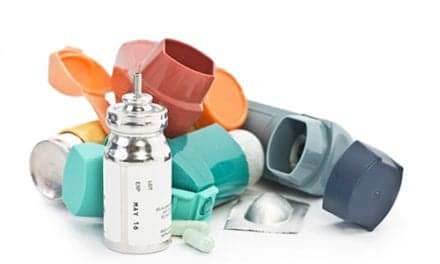Royal Philips released findings from its first ever World COPD Day survey of more than 4,000 adults in China, India, Russia and the US. The survey aimed to gather insights on global awareness of respiratory conditions, such as COPD, and how the COVID-19 pandemic has influenced overall perceptions of respiratory health. Responses show that while action to improve respiratory health is on the rise, significant differences exist between the COPD and non-COPD populations in how they seek care. Findings also revealed that while the pandemic created unique challenges for the COPD community, it also increased awareness for the condition and pushed COPD patients to pursue alternative care options.
“Due to the nature of the COVID-19 virus, respiratory health has become a daily conversation across the globe,” said Huiling Zhang, Head of Medical Office for Connected Care at Philips. “Despite impacting millions of people around the world, COPD isn’t talked about as often as other chronic conditions like heart disease. We conducted this survey to shed light on the unique burdens and stresses that COPD patients face every day, intensified during this time. The survey results show that more than ever, respiratory health – and taking action to improve it – is a priority, but that the impacts of the pandemic have been especially felt by the COPD community, whom we work so hard to support with our respiratory solutions.”
COPD Patients Facing Care Challenges throughout COVID-19
For those living with COPD, the pandemic impacted the care they required and received. 56% of COPD patients report COVID-19 has made it difficult for them to get COPD treatment, 58% report that managing their COPD during the pandemic has been completely overwhelming, and 68% report they worry much more than they used to about their chronic condition because of the pandemic. COVID-19 also presented challenges for informal caregivers of COPD patients, with 79% specifically citing the pandemic as the factor that influenced the amount of care they provided to the COPD patient.
COPD Awareness Rising Amid Knowledge Gaps
While COVID-19 may have exacerbated individual concerns for the nearly 65 million people [1] currently living with COPD, it also brought increased awareness for the chronic condition across the globe. Nearly three in five people report being more familiar with COPD now compared to prior to the COVID-19 pandemic, which may be directly linked with increased education around respiratory illnesses due to the nature of COVID-19. Prior to the pandemic, 52% of respondents reported being familiar with COPD; that number is now up to 72%.
Emphasis on Respiratory Health, Virtual Care Options Increases
With concern growing around in-person care, willingness for telehealth visits has been on the rise since the onset of the pandemic. Particularly for wellness visits (56% to 62%), regular check-ins for a chronic health issue (57% to 64%), and to discuss a new health issue (57% to 63%). This increase was surprisingly more prevalent among the non-COPD population, with 55% willing to use telehealth to receive treatment for a chronic health issue before COVID-19, now up to 62%. Additionally, COPD patients looked for better ways to manage their condition because of COVID-19 (75%).
Philips’ broad portfolio of connected solutions and services is designed to address the needs of patients with chronic respiratory conditions like COPD and enable providers and physicians to more effectively manage patient care. For additional survey findings and data, or to learn more about how Philips is working to increase awareness this World COPD Day, please visit: Philips.com/WorldCOPDDay.
[1] https://www.healthline.com/health/copd/facts-statistics-infographic#:~:text=More%20than%2065%20million%20people,over%20the%20next%2050%20years
About the Survey
This survey was conducted online by KJT Group, Inc. on behalf of Philips from October 8-17, 2020 among 4,001 adults ages 18 and older in 4 countries (China.: n=1,000; India: n=1,000; Russia: n=1,001; and the U.S.: n=1,000). The survey was web-based and self-administered in the primary language(s) of each country. These were non-probability samples and thus a margin of error cannot be accurately estimated. For complete survey methodology, including weighting variables, please contact Meredith Amoroso at [email protected].










